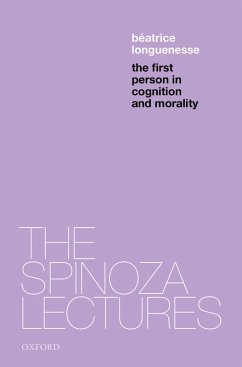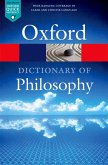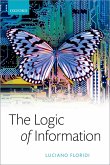What do we express when we use the first-person pronoun 'I' in phrases such as 'I think' or 'I ought to'? Do we refer to ourselves as biologically unique, socially determined individuals? Or do we express a consciousness of ourselves as the bearers of thoughts we share, or can share, with all other human beings whatever their particular biological, social, or cultural background? Every year the Faculty of Philosophy at the University of Amsterdam invites a prominent philosopher to occupy the Spinoza Chair and give two public lectures on a topic in philosophy. Beatrice Longuenesse, in these lectures, explores the contrast and complementarity between these two aspects of the use of 'I'. Her first lecture considers the first-person pronoun in relation to the exercise of our mental capacities in abstract reasoning, and in relation to our knowledge of objective facts about the world. Her second lecture explores the use of 'I' in relation to what we take to be our moral obligations. In bringing together these two fascinating lectures, this book presents contrasting aspects of the self as radically individual on the one hand, and as the bearer of universally shared capacities on the other.
Dieser Download kann aus rechtlichen Gründen nur mit Rechnungsadresse in A, B, BG, CY, CZ, D, DK, EW, E, FIN, F, GR, HR, H, IRL, I, LT, L, LR, M, NL, PL, P, R, S, SLO, SK ausgeliefert werden.









